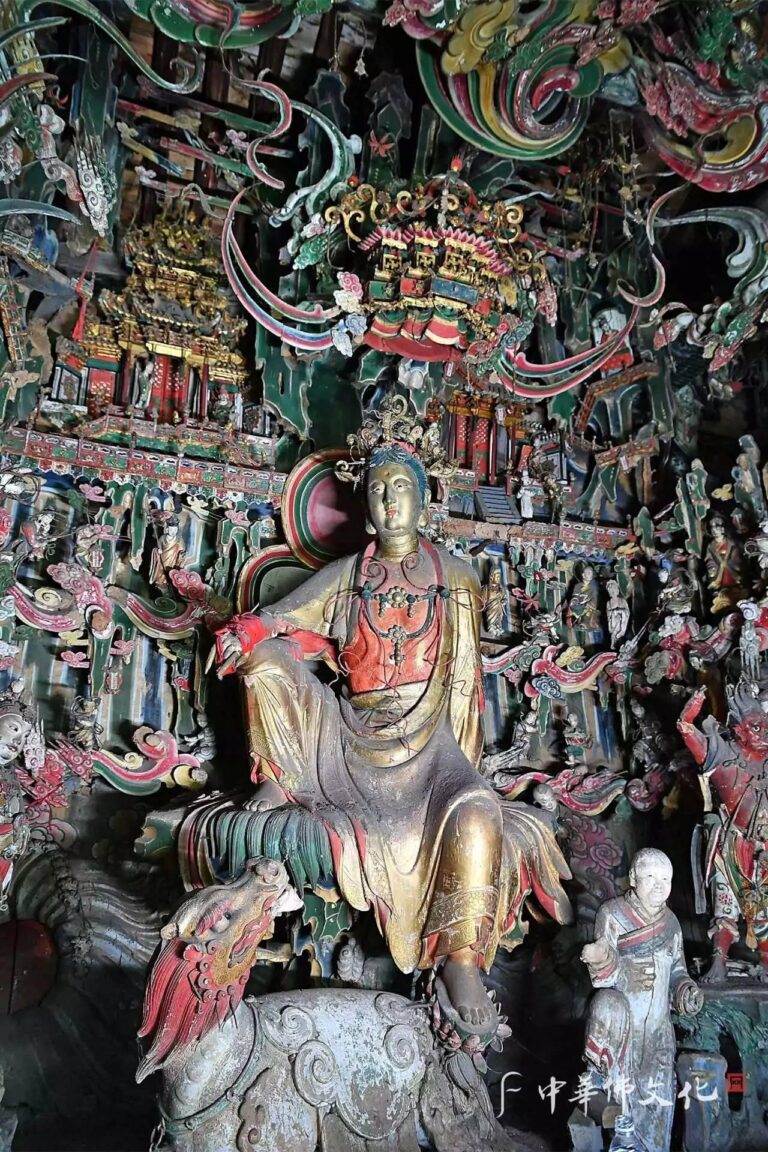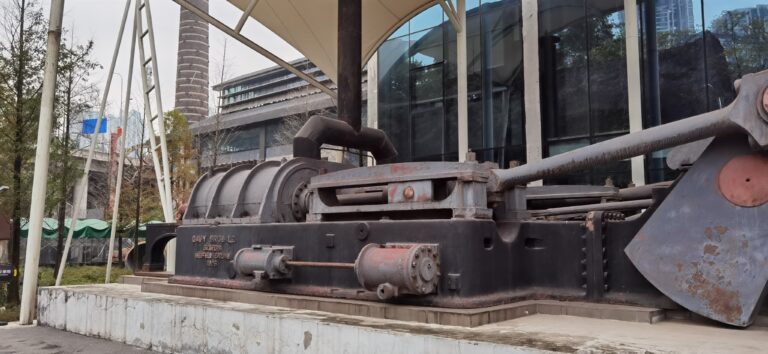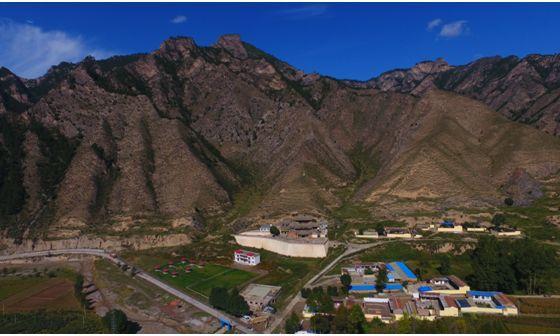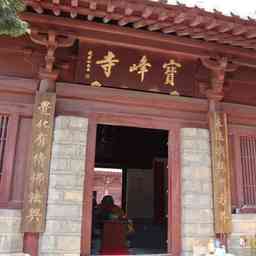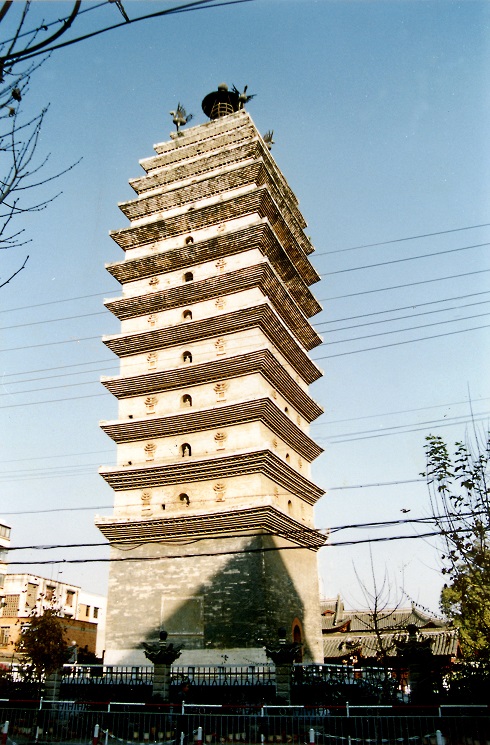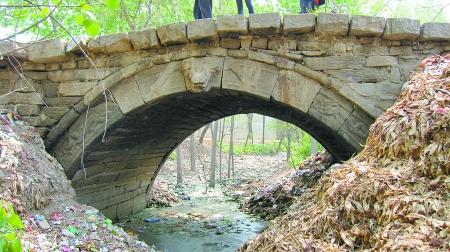Discover the Spiritual Wonders of Jincheng Xidun Jidu Temple in Shanxi
An Essential Guide to Visiting Jincheng Xidun Jidu Temple
In This Guide
- An Essential Guide to Visiting Jincheng Xidun Jidu Temple
- The Rich History of Jincheng Xidun Jidu Temple
- Main Highlights: What to See at Jincheng Xidun Jidu Temple
- Planning Your Visit: A Practical Guide
- Tickets, Hours, and Booking
- How to Get There
- Local Cuisine and Accommodation
- Frequently Asked Questions
- Final Thoughts on Your Trip
Nestled in the serene hills of Shanxi Province, the Jincheng Xidun Jidu Temple (西顿济渎庙) stands as a testament to the region’s rich cultural and historical tapestry. Dating back to the transition period between the Northern Song and Jin dynasties, this ancient structure is not just a place of worship but a symbol of the enduring human connection to nature and spirituality. As you approach the temple, you are greeted by its majestic façade, which has withstood the passage of nearly a millennium, reflecting the artistry of its time through intricate brick and wood construction.
The temple is dedicated to the revered Jidu deity, who presides over rainfall and agricultural prosperity, echoing the age-old reverence for water as a life-giving force. This veneration is deeply rooted in the local culture, where the Jidu god has been championed by emperors and common folk alike, underscoring the temple’s significance as both a spiritual haven and a historical landmark.
In 2011, Xidun Jidu Temple was recognized as one of the top discoveries in China’s third national cultural relics survey, and two years later, it earned a spot on the list of national key cultural heritage sites. With its beautifully preserved main hall and unique architectural style, the temple not only serves as a portal into the past but also offers visitors a glimpse into the socio-political evolution during the Song and Jin dynasties.
As you step inside this sacred space, the air is thick with history, whispering tales of devotion and artistry that have transcended generations. Whether you are a history enthusiast, a spiritual seeker, or simply a traveler in search of tranquility, the Jincheng Xidun Jidu Temple promises an enriching experience, inviting you to reflect on the harmonious interplay between humanity and the divine.
The Rich History of Jincheng Xidun Jidu Temple
Nestled in the serene village of Xidun, located within the Gao Du Town of Zezhou County in Shanxi Province, the Jincheng Xidun Jidu Temple stands as a testament to the architectural and spiritual heritage of China. Its history traces back to the transitional period between the Northern Song and Jin dynasties, around 1122 AD, during the reign of Emperor Huizong of Song. The temple was constructed to honor the Jidu deity, known for governing rain and agricultural prosperity, reflecting the ancient Chinese reverence for water and its vital role in sustaining life.
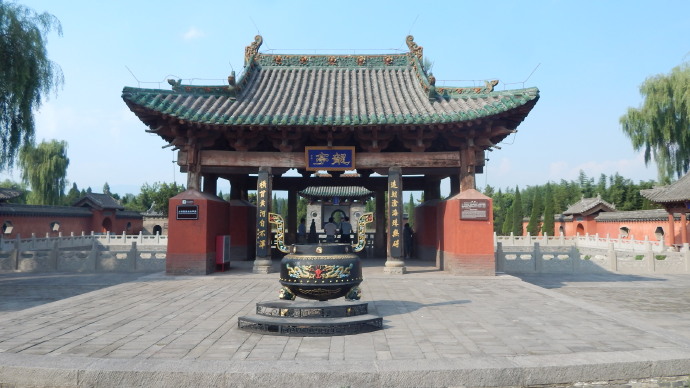
Jincheng Xidun Jidu Temple.
The temple’s construction was marked by a series of historical events that shaped its evolution. Originally initiated by local benefactors during a time of relative peace, the project faced delays due to the turmoil of the Song-Jin Wars. It wasn’t until the Jin Dynasty’s Dading era, in 1188, that the temple was completed, as evidenced by an inscription commemorating its construction. This historical backdrop not only highlights the resilience of local communities in the face of adversity but also underscores the significance of the temple in the cultural landscape of the region.
Architecturally, the temple is renowned for its main hall, constructed in the fourth year of the Xuanhe era of Emperor Huizong, which features an intricate wooden and brick structure. The hall’s design showcases the exquisite craftsmanship of the time, with its elegant brackets, ornate beams, and beautifully preserved black ink coating that served to protect against pests and the elements. This design reflects the artistic and cultural characteristics prevalent during the Song and Jin dynasties, making the temple an invaluable resource for scholars studying the historical socio-economic and cultural transformations of the era.
Throughout the centuries, the temple has undergone various renovations, the most significant of which occurred during the Qing Dynasty in 1778, as noted by another inscription. These restorations have helped preserve the temple’s integrity, allowing it to withstand the test of time and remain a vital spiritual site.
In modern times, the Jincheng Xidun Jidu Temple has been recognized for its cultural significance, being listed as one of the “Top 100 New Discoveries” in the third national cultural relics census in 2011 and later designated as a key national cultural relic protection unit in 2013. This recognition not only affirms the temple’s architectural and historical value but also enhances its status as a destination for cultural tourism, drawing visitors eager to connect with the rich spiritual and historical tapestry of the region.
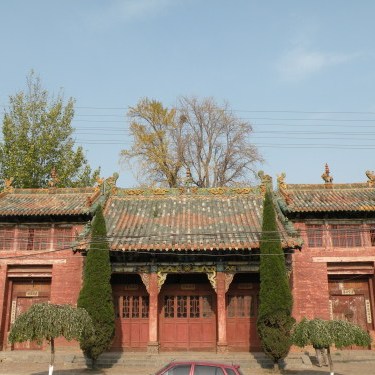
Jincheng Xidun Jidu Temple.
As visitors approach the temple today, they are greeted not only by its majestic structure but also by the echoes of centuries of devotion and cultural heritage that continue to resonate within its walls, making it a remarkable site for both spiritual reflection and historical exploration.
Main Highlights: What to See at Jincheng Xidun Jidu Temple
Nestled in the picturesque village of Xidun, within the Zezhou County of Shanxi Province, the Jincheng Xidun Jidu Temple is a remarkable testament to ancient architecture and cultural heritage. Dating back to the Southern Song and Jin dynasties, this temple has weathered the storms of time, offering visitors a glimpse into the region’s rich historical tapestry.
One of the temple’s most captivating features is its main hall, constructed during the fourth year of the Xuanhe era (1122 AD) of the Song Dynasty. The hall boasts an exquisite brick and wood structure, showcasing intricate bracket systems known as dougong, which create a sense of elegant balance. The use of black ink for protective coating against pests and erosion is a clever nod to traditional building practices, ensuring the temple’s longevity.
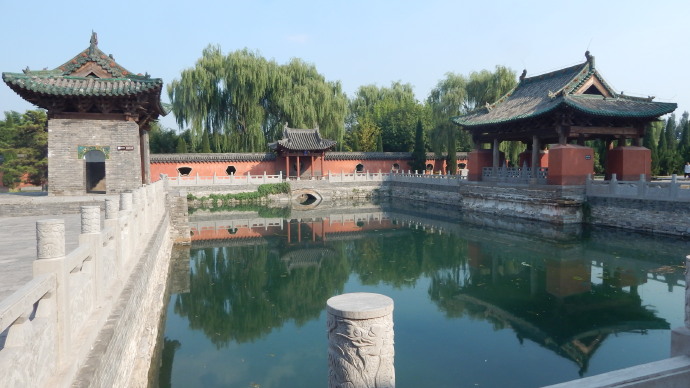
Jincheng Xidun Jidu Temple.
Visitors are often struck by the temple’s unique architectural layout, covering approximately 1,294 square meters. The main hall, theater, and various side buildings all align along a central axis, reflecting the careful planning typical of ancient Chinese temples. This harmonious arrangement not only enhances the aesthetic appeal but also symbolizes the spiritual journey from the earthly realm to the divine.
The temple is dedicated to the worship of the Jidu deity, revered for controlling rain and ensuring bountiful harvests. This connection to agricultural prosperity underscores the temple’s historical significance, as it was a focal point for community prayers and offerings, especially during times of drought.
In recognition of its cultural importance, Xidun Jidu Temple was designated as a key national cultural relic in 2013 and has since attracted attention from historians and tourists alike. The temple’s remarkable preservation, combined with its rich folklore and historical context, makes it an essential stop for anyone interested in exploring the depths of Chinese history and spirituality.
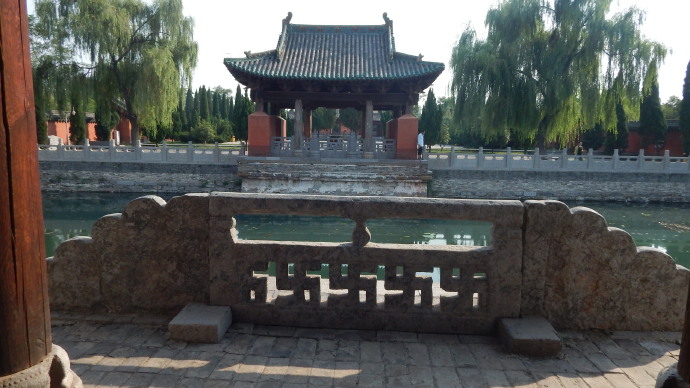
Jincheng Xidun Jidu Temple.
Whether you’re an architecture enthusiast, a history buff, or simply seeking a serene place of reflection, the Jincheng Xidun Jidu Temple offers a captivating experience that echoes the voices of centuries past.
Planning Your Visit: A Practical Guide
Practical Guide to Visiting Jincheng Xidun Jidu Temple
Nestled in the serene countryside of Shanxi Province, Jincheng Xidun Jidu Temple is a hidden gem that invites visitors to explore its rich history and stunning architecture. This ancient temple, dedicated to the revered Jidu deity, showcases a blend of cultural significance and architectural beauty, making it a must-visit for travelers interested in Chinese heritage.
Getting There
Location:
Xidun Jidu Temple is located in Xidun Village, Gaodu Town, Zezhou County, approximately 2 kilometers east of the town center. Jincheng serves as the nearest major city.
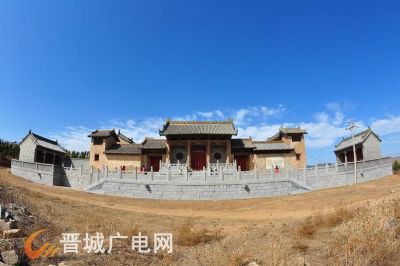
Jincheng Xidun Jidu Temple.
Transportation Options:
– By Train: Jincheng has a railway station with connections to major cities. From the station, you can take a taxi or local bus to reach the temple.
– By Car: If you prefer driving, rent a car in Jincheng for a scenic journey through the hills. Follow local road signs towards Zezhou County and then to Gaodu Town.
– Public Transport: Local buses from Jincheng frequently travel to Zezhou County, providing an affordable and convenient option.
Best Time to Visit
The ideal time to visit is during spring (April to June) and autumn (September to November) when the weather is mild and the scenery is particularly beautiful. Summer can be hot, while winter might bring cold temperatures, so dress accordingly if visiting during those seasons.
Exploring the Temple
Architecture:
The temple, constructed during the Northern Song Dynasty, features an impressive brick and wood structure with intricate designs. The main hall, or Zhengdian, is the highlight, showcasing exquisite craftsmanship with its beautifully carved beams and columns. Make sure to admire the original features that date back centuries, including the stone inscriptions documenting its history.
Cultural Significance:
Dedicated to the Jidu deity, the temple reflects the ancient Chinese belief in water spirits, particularly Jishui, which was historically revered for its role in agriculture and weather. The temple serves as a testament to the local people’s reverence for nature and the divine.
Facilities:
The temple complex encompasses a large courtyard, offering space for visitors to explore. Although the site is primarily focused on cultural and historical appreciation, basic amenities such as rest areas are available. It is advisable to bring your own snacks and water.
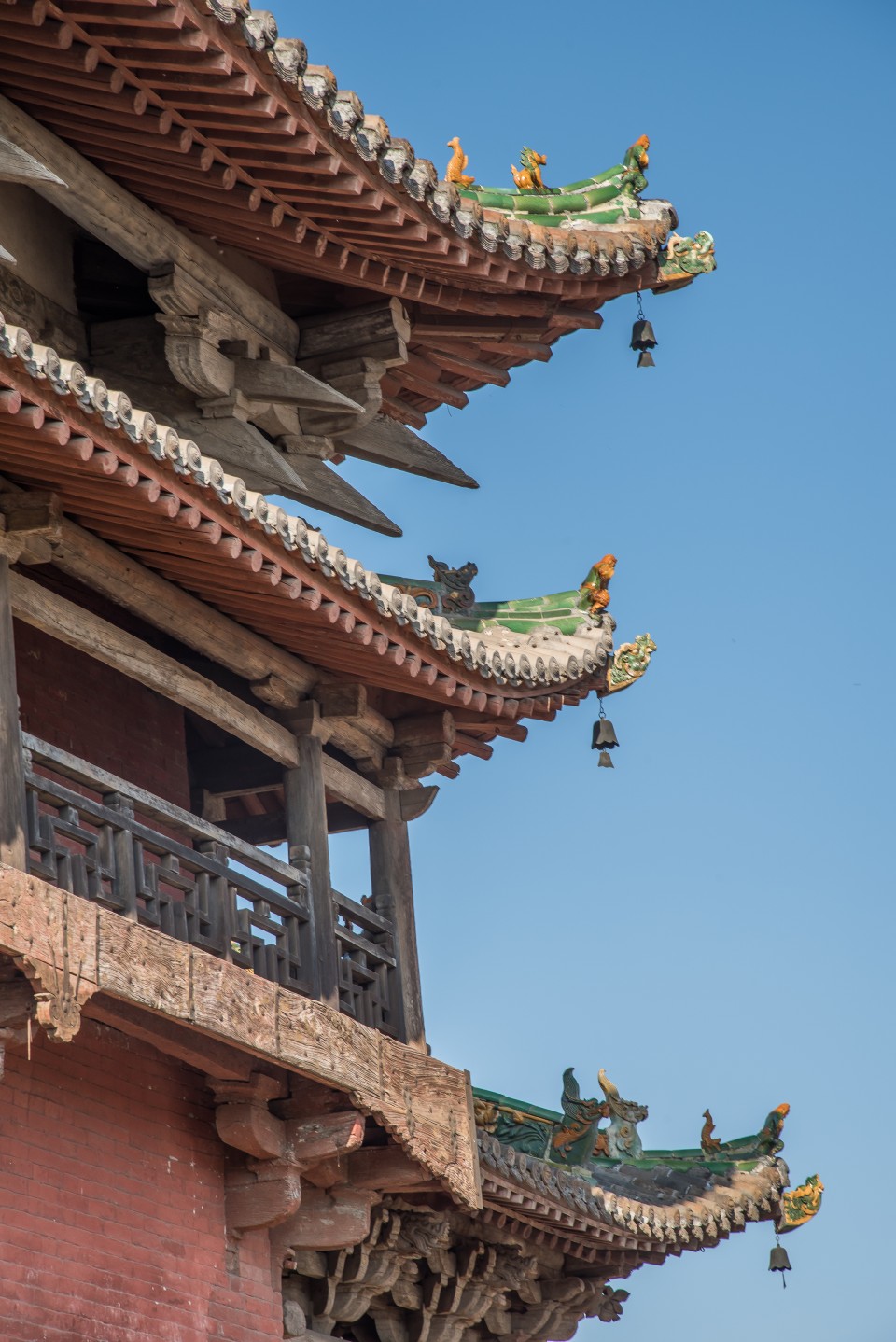
Jincheng Xidun Jidu Temple.
What to Bring
- Comfortable Footwear: The temple grounds involve some walking, so wear shoes suitable for uneven surfaces.
- Camera: Capture the stunning architecture and serene landscapes, but be respectful of the sacred nature of the site.
- Water and Snacks: While there may be minimal facilities on-site, having refreshments can enhance your visit.
Nearby Attractions
After exploring Jincheng Xidun Jidu Temple, consider visiting other nearby cultural sites:
– Zezhou Qinglian Temple: Another significant temple known for its peaceful atmosphere.
– Dayang Ancient Town: Experience traditional architecture and local life.
– Jianshan Scenic Area: Perfect for hiking and enjoying nature.
Cultural Etiquette
As a sacred site, visitors are encouraged to maintain a respectful demeanor. Avoid loud noises, and if you wish to take photos, ensure that it is permitted in specific areas. When inside the temple, it is customary to bow or show reverence if you participate in any rituals.
Conclusion
Jincheng Xidun Jidu Temple offers a unique glimpse into the spiritual and architectural heritage of ancient China. Whether you are a history buff, an architecture enthusiast, or simply looking for a quiet retreat, this temple provides a meaningful experience in the heart of Shanxi Province. Make sure to include it in your travel itinerary for a memorable journey through time.
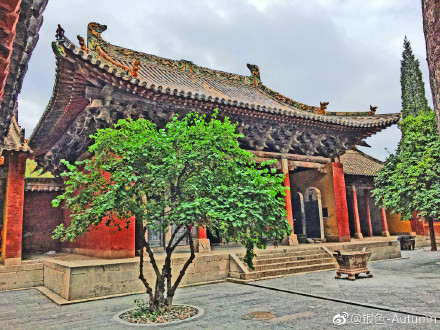
Jincheng Xidun Jidu Temple.
Tickets, Hours, and Booking
When planning your visit to the enchanting Jincheng Xidun Jidu Temple, it’s essential to know the ticketing details to ensure a smooth experience.
Admission Fees
Entry to the Jincheng Xidun Jidu Temple is generally free of charge, allowing visitors to explore its historical and architectural wonders without any financial barrier. This makes it an accessible destination for everyone, from culture enthusiasts to casual travelers.
Opening Hours
The temple is open daily, typically from 8:00 AM to 5:00 PM. It’s advisable to arrive early in the day to fully appreciate the serene atmosphere and avoid any crowds that may form later in the day.
Guided Tours
For those interested in a deeper understanding of the temple’s rich history and cultural significance, guided tours may be available. These tours often require a small fee, which varies based on the provider and the length of the tour. It’s recommended to inquire locally for specifics on tour availability and pricing.
Accessibility
The temple grounds are designed to be accessible, allowing visitors of all abilities to enjoy the site. However, due to its historical nature, some areas may have uneven surfaces, so comfortable footwear is advised.
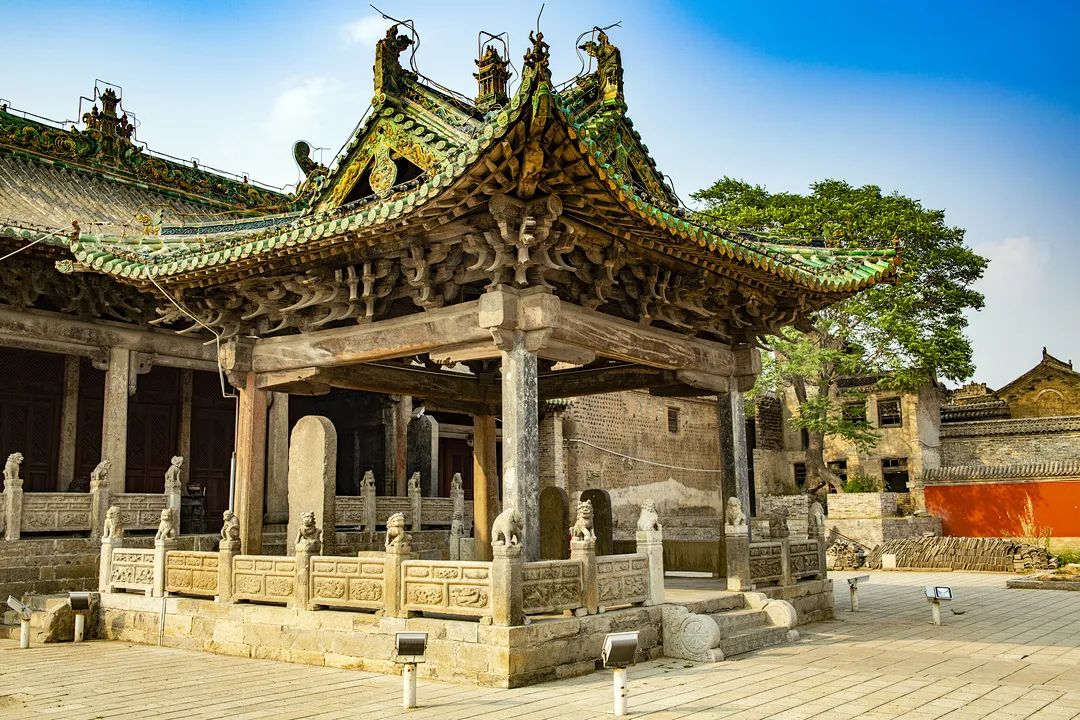
Jincheng Xidun Jidu Temple.
Transportation
While public transport options may exist, consider hiring a taxi or using a ride-sharing service for convenience. The temple is located in Xidun Village, east of Gaodu Town in Zezhou County, making it relatively easy to reach.
Special Events
Keep an eye out for any special events or festivals that may occur during your visit, as these can enhance your experience. Some events may have specific entry fees or require advance booking.
With these details in hand, you’re well-equipped to immerse yourself in the spiritual and historical ambiance of the Jincheng Xidun Jidu Temple. Enjoy your visit!
How to Get There
Reaching Jincheng Xidun Jidu Temple, known for its rich history and architectural beauty, is straightforward, especially with the variety of transportation options available.
Getting There
By Train:
The nearest major train station is Jincheng East Railway Station, which connects to various cities across China. From there, you can take a taxi or a local bus to reach the temple. The journey from the train station to Xidun Village is approximately 15 kilometers and takes around 30 minutes by car.
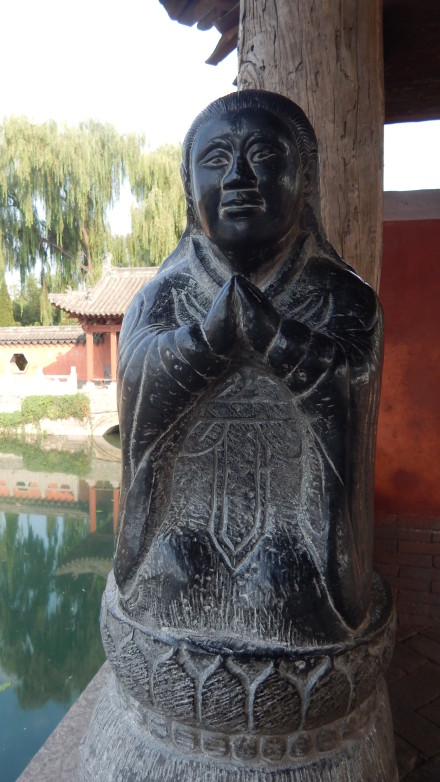
Jincheng Xidun Jidu Temple.
By Bus:
For those opting for public transport, there are several long-distance buses that operate from Jincheng’s main bus station to Gao Du Town, where the temple is located. The bus ride takes about 40 minutes. Once you arrive in Gao Du, you can take a short taxi ride to the temple, which is only about 2 kilometers away.
By Car:
If you prefer driving, you can rent a car or use a ride-hailing service. The temple is easily accessible via highways, and the drive offers scenic views of the surrounding countryside. From Jincheng city center, it typically takes about 30 minutes to reach the temple by car.
Local Transport:
Once in Gao Du Town, local taxis are available for hire and can be a convenient option for reaching the temple directly. Alternatively, if you enjoy walking, the area around Xidun Village is quite picturesque and can be explored on foot.
Tips for Visitors
- Navigation: Consider downloading offline maps or using a GPS-enabled app, as some rural areas may have limited signage in English.
- Timing: The temple is open year-round, but it’s advisable to check local holidays or events that may affect visiting hours.
- Comfort: Wear comfortable shoes if you plan on exploring the temple grounds and the surrounding village.
With these transportation options at your disposal, visiting Jincheng Xidun Jidu Temple promises to be a smooth and enriching experience. Enjoy your journey through history!
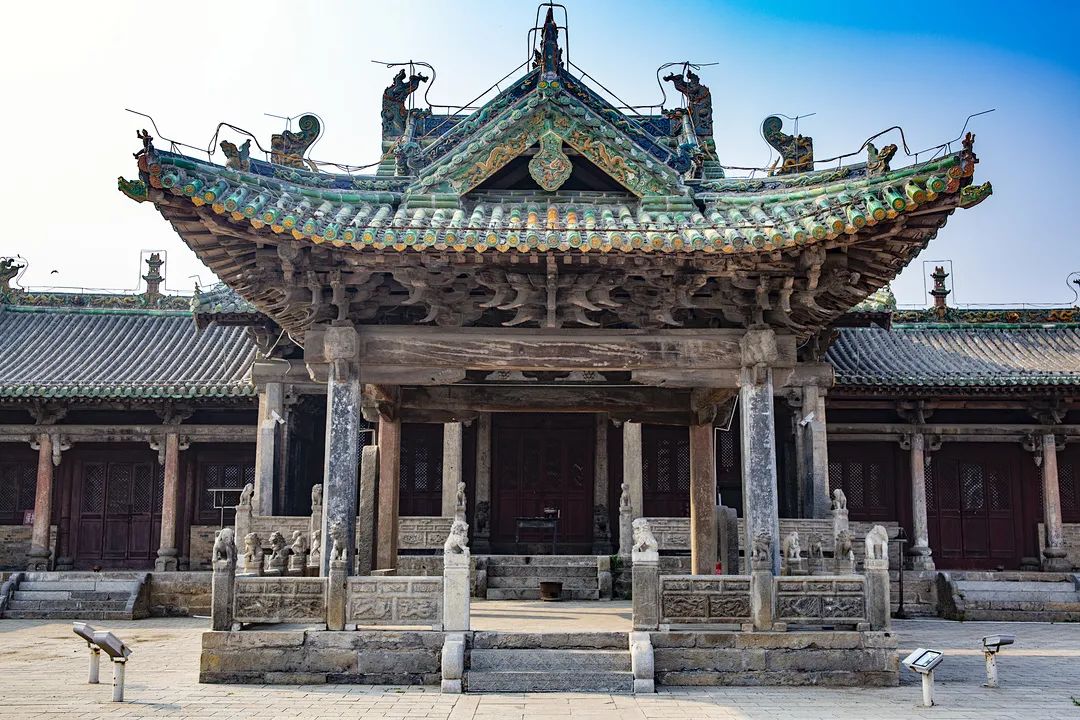
Jincheng Xidun Jidu Temple.
Local Cuisine and Accommodation
When visiting the serene Jincheng Xidun Jidu Temple, a journey through the local culinary landscape and accommodation options can enhance your experience. Here’s a guide to some delightful food and comfortable places to stay in the vicinity.
Dining Options
1. Jincheng Danhe Voco Hotel – Fengcai Building Chinese Restaurant
This restaurant offers an exquisite array of local Shanxi dishes. Guests can indulge in specialties such as Qingtang Xie Xie (clear broth dumplings) and Jincheng’s Top Ten Bowls, a collection of signature dishes that reflect the region’s rich culinary heritage.
2. Gu Feng Restaurant
Known for its authentic atmosphere and traditional décor, Gu Feng Restaurant serves a variety of local fare, including delicious hand-pulled noodles and Braised Pork with Sweet Bean Sauce. This is a great spot for travelers looking to immerse themselves in the local culture while enjoying a hearty meal.
3. Xiaojun New Concept Cultural Theme Hotpot
For a more interactive dining experience, head to this hotpot restaurant where you can select your own fresh ingredients and cook them at your table. It’s a fun way to enjoy a meal with friends or family while savoring the flavors of spicy Sichuan broth or a milder herbal soup base.
4. Yunnan Guoqiao Rice Noodles
If you’re in the mood for something different, try the Yunnan-style rice noodles at this cozy eatery. Known for their unique flavor combinations and fresh ingredients, the noodles are typically served with a variety of toppings and a broth that warms the soul.
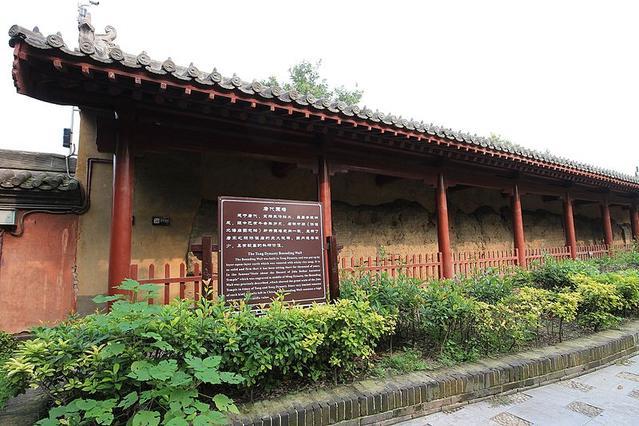
Jincheng Xidun Jidu Temple.
5. Laomao Hotpot (Fengcheng Road)
This bustling hotspot is popular among locals and offers a vibrant atmosphere. Enjoy an array of meats, vegetables, and sauces as you dive into a communal hotpot experience. It’s perfect for those looking to connect with fellow travelers or locals over a shared meal.
Accommodation
1. Jincheng Danhe Voco Hotel
This upscale hotel provides a perfect blend of comfort and luxury. With modern amenities, beautifully appointed rooms, and a tranquil environment, it’s an ideal choice for travelers seeking relaxation after a day of exploring. The hotel is conveniently located, making it easy to access local attractions, including the temple.
2. Fengcheng Health and Wellness Center
Set amidst picturesque scenery, this wellness center offers a peaceful retreat with comfortable accommodations. Guests can enjoy spa services and rejuvenating treatments after a day of sightseeing. The serene environment is perfect for unwinding and recharging.
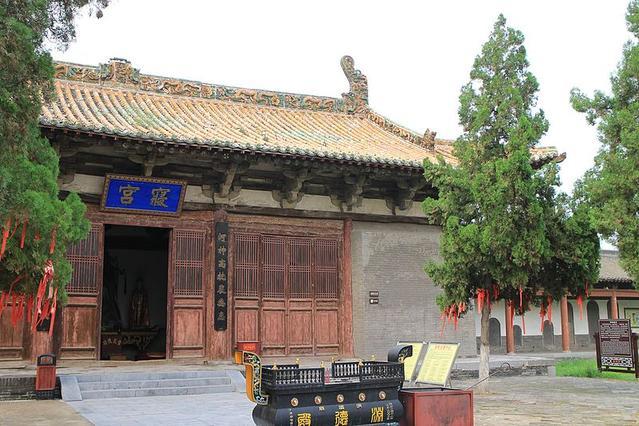
Jincheng Xidun Jidu Temple.
3. Jincheng Huazhong Hotel
A more budget-friendly option, this hotel offers clean and simple rooms with essential amenities. It’s an excellent choice for travelers looking to save money without compromising on comfort. The hotel’s location provides easy access to local dining and shopping options.
4. Xidun Village Guesthouse
For a more authentic experience, consider staying at a guesthouse in Xidun Village. Here, you can enjoy the warmth of local hospitality, home-cooked meals, and engaging conversations with the village residents. It’s a great way to immerse yourself in the local culture and gain insights into the history of the area.
5. Budget Hostels
Several hostels are available for backpackers and solo travelers looking for economical lodging. These places often feature communal areas where guests can share stories and make new friends, adding a social element to your stay.
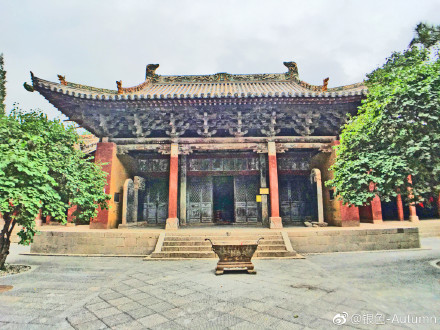
Jincheng Xidun Jidu Temple.
As you explore the historical and cultural richness of Jincheng Xidun Jidu Temple, indulging in local cuisine and choosing the right accommodation will ensure a memorable visit. Whether you prefer luxury or simplicity, the options here cater to all kinds of travelers.
Frequently Asked Questions
-
What is the historical significance of Jincheng Xidun Jidu Temple?
Jincheng Xidun Jidu Temple, built during the transition from the Song to Jin Dynasties, is significant for its architectural style and cultural heritage. It reflects the historical changes in society and beliefs, particularly regarding water deities, as it venerates the Jidu God who was believed to control rain and agricultural prosperity. -
When was the temple constructed, and what architectural styles are represented?
The temple was originally constructed in the 4th year of the Xuān Hé reign (1122 AD) during the Northern Song Dynasty. Its primary structure showcases traditional Chinese architectural elements such as brick and wooden constructions, with exquisite bracket sets and stone columns, representing the unique styles of the Song and Jin periods. -
How can I get to Jincheng Xidun Jidu Temple?
The temple is located in Xidun Village, east of Gaodu Town in Zezhou County, Jincheng City, Shanxi Province. Visitors can reach the site via local public transportation or by car. The area is well-connected, making it convenient for travelers. -
What are the temple’s opening hours and admission fees?
The temple is generally open to visitors throughout the week, but specific opening hours may vary, especially during festivals or maintenance periods. Admission is typically free, but donations for the preservation of the temple may be welcomed. -
Are there any nearby attractions worth visiting?
Yes, several nearby attractions include the Qinglian Temple, Danyang Ancient Town, and various other historical temples in the region. These sites offer a glimpse into the rich cultural heritage of Jincheng and are often recommended as part of a broader travel itinerary. -
What facilities are available at the temple for visitors?
While the temple primarily serves spiritual purposes, basic facilities such as rest areas and information boards are available for visitors. However, amenities may be limited, so it’s advisable to plan accordingly, especially if traveling with a group or family. -
Can I participate in any local rituals or festivals at the temple?
Yes, visitors are often welcome to observe or participate in local rituals, especially during significant festivals related to agricultural blessings or water worship. It’s best to check in advance with local guides or temple caretakers for specific events and appropriate etiquette. -
What should I wear when visiting the temple?
Visitors are encouraged to dress modestly and respectfully, as it is a place of worship. Comfortable shoes are recommended due to the temple’s outdoor setting and possible uneven surfaces. Avoid wearing overly casual attire like shorts or tank tops.
Final Thoughts on Your Trip
Visiting the Jincheng Xidun Jidu Temple is not just a journey into the heart of ancient architecture; it is an exploration of the rich tapestry of Chinese history and culture. This remarkable temple, built during the transitional period between the Song and Jin dynasties, stands as a testament to the enduring reverence for the water god, Jidu, and the profound connection between nature and spirituality in Chinese society.
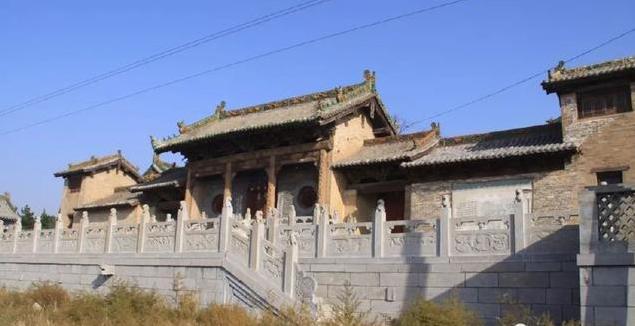
Jincheng Xidun Jidu Temple.
As you wander through its intricately designed halls and admire the craftsmanship that has withstood the test of time, you’ll find yourself reflecting on the centuries of devotion and the myriad of stories that this sacred site has witnessed. Each stone and beam resonates with the prayers of countless pilgrims who sought blessings for rain and bountiful harvests, a reminder of humanity’s ever-present relationship with the elements.
Today, the Jincheng Xidun Jidu Temple serves not only as a historical monument but also as a serene retreat for those seeking solace and contemplation. Whether you are a history enthusiast, an architecture lover, or simply a traveler in search of tranquility, this temple invites you to step back in time and connect with the spiritual essence that has drawn visitors for nearly a millennium. Immerse yourself in its beauty, embrace its heritage, and let the whispers of the past inspire your journey forward.
